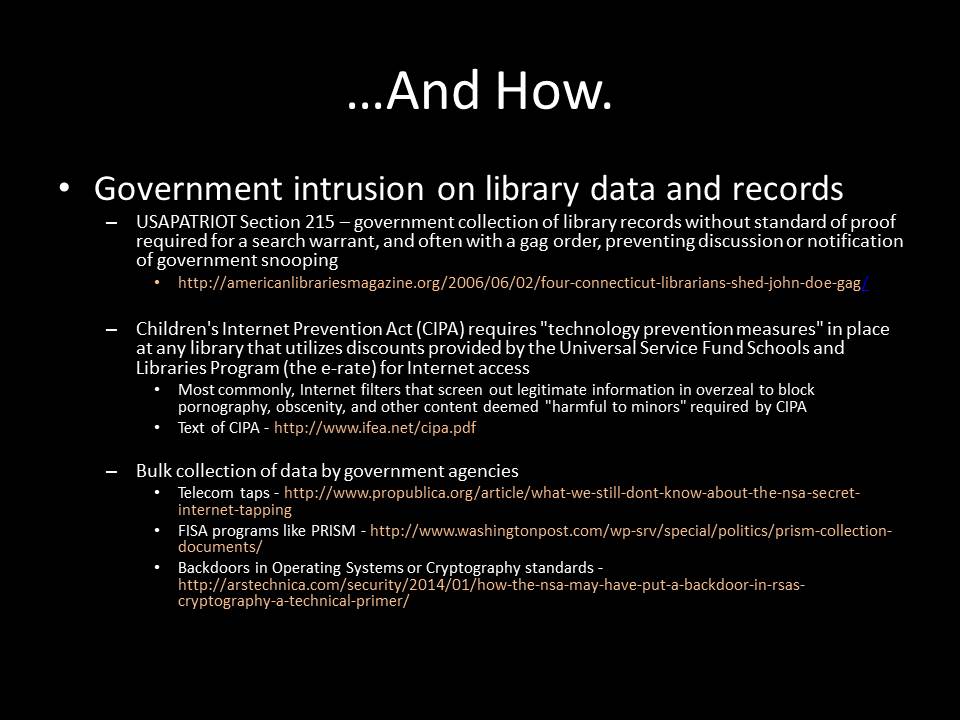Governments Dislike Public Libraries

In addition to private enterprises, using laws like the Children's Internet Protection Act (CIPA), government intrudes and dictates to public libraries what they must do to prevent curious teenagers from reading accurate information about their bodies and their developing sexuality, in exchange for receiving a discounted rate on their Internet access. The requirement dictates a "technology prevention measure" to prevent minors from accessing content deemed harmful to them, which is most commonly implemented using filtering software, which is ineffective against a teenager with a modicum of curiosity and technical skill.
Using USAPATRIOT ("The Patriot Act") Section 215, the government can request any records kept by a public library. It does not require the standard of proof for the issuance of a search warrant to do so, and any library so served is often given a legal requirement to say nothing about the intrusion by the government into those records. The reason we know about the accompanying gag orders involved is because a library in Connecticut was able to successfully challenge the gag order in a Section 215 request in court after a protracted battle. Again, the underlying order was not countermanded, and so whatever was requested by the government still had to be delivered, but they could at least tell people that it happened.
Mentioning these laws is one way the government may be able to collect data that should be private. The government likely has the ability to directly capture information in one way or another, through the use of surveillance on communications systems, exploitation of flaws or deliberate backdoors installed or introduced into operating systems, or other methods that generally are not governed by open warrants or effectively overseen by the entities those agencies are nominally subordinate to. There's a lot still unknown about the breadth and depth of spying and surveillance programs, and there's no guarantee that legislators or anyone else with the power to effectively stop the programs knows the extent of the programs.